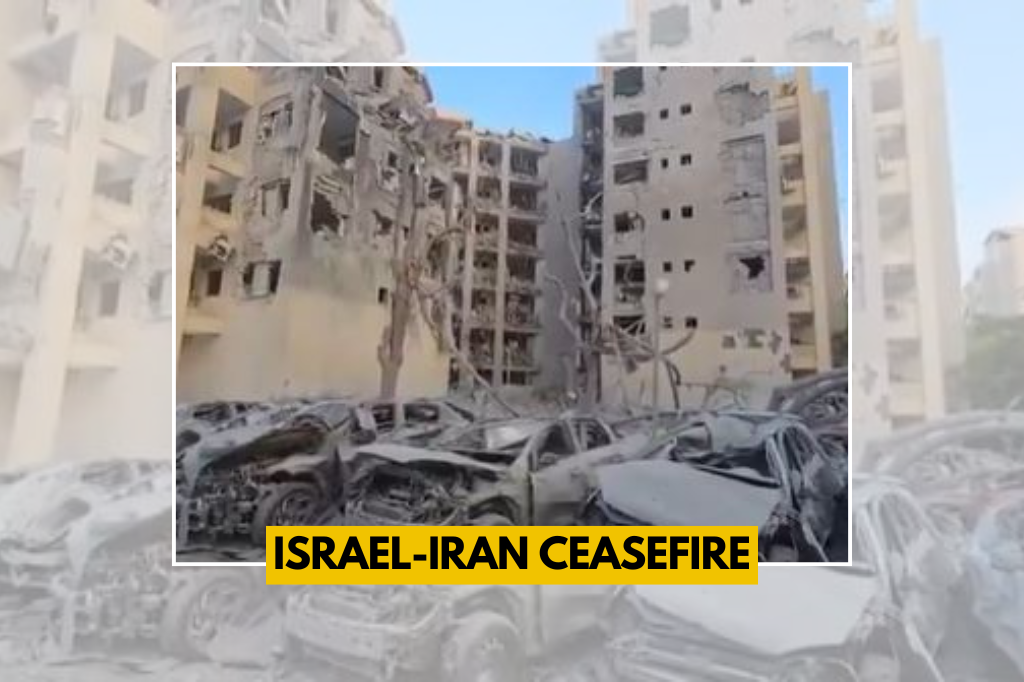A ceasefire between Iran and Israel came into effect early Tuesday, June 24, following an intense overnight exchange of missile attacks that left at least seven people dead in the southern Israeli city of Be’er Sheva.
According to Iranian state-run media, the truce – announced hours earlier by US President Donald Trump – followed five waves of Iranian missile strikes on what it referred to as “Israeli-occupied territories.” The phased ceasefire began at approximately 4:00 a.m. GMT for Iran, with Israel expected to halt its operations 12 hours later.
One of the final Iranian missile strikes, launched just before the ceasefire deadline, hit a residential building in Be’er Sheva, killing seven and injuring several others. Footage circulating on social media shows the building completely destroyed, with charred vehicles and scorched trees nearby.
Iran’s state broadcaster, IRIB, confirmed that the fifth and final wave of attacks was launched just minutes before the ceasefire was to take effect. “The fifth wave of this morning’s missile attack from Iran is on its way to the occupied territories,” IRIB posted on Telegram shortly before 4:00 a.m. GMT.
The Israeli military, in a separate statement posted at 5:00 a.m. local time (2:00 a.m. GMT), confirmed it was actively intercepting incoming missiles. “Sirens sounded in several areas across Israel following the identification of missiles launched from Iran,” the statement read, without providing additional details on casualties or damage.
The recent escalation began on June 13, when Israel launched preemptive airstrikes on Iranian military and nuclear facilities. In the days that followed, both nations traded missile attacks, prompting Trump to issue warnings of a potential “massive” regional war.
In his announcement, Trump said the ceasefire would be implemented in stages to allow both countries to wind down ongoing military operations. He claimed the agreement marked the “official END” of hostilities and thanked Iran for what he described as providing advance notice of its retaliatory missile strikes.
Iranian Foreign Minister Abbas Araghchi also indicated a willingness to de-escalate, stating that Tehran would halt its attacks if Israel stopped its airstrikes. While Iranian officials confirmed adherence to the ceasefire, Israel has yet to issue an official statement on its participation.
ran’s Revolutionary Guards also promised that the United States would regret any further attacks on Iran. “We warn the foolish and stupid American president…that in case of the repeat of an aggression or attack against the sacred system of the Islamic Republic of Iran and the proud martyr-bearing land of Iran, he will receive more crushing and regrettable responses that will serve as a lesson,” the Guard’s commander Mohammad Pakpour was quoted as saying by state television.







